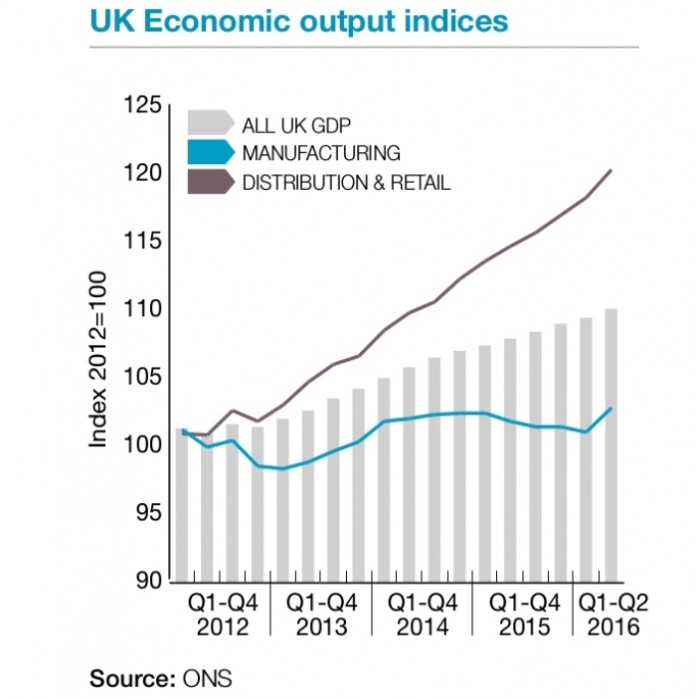Demand for UK logistics and industrial property remains strong with the long-term outlook positive due to the continued growth of online sales driving occupier demand, despite a downturn in Q2 of 2016 according to Knight Frank’s latest LOGIC H1 2016 report.
The industrial occupier market is seeing a somewhat mixed picture. H1 2016 saw a total of 16.2 million sq ft of units above 50,000 sq ft acquired for occupation, 14% down from H2 2015 and 4% down from H1 2015. Despite this, the South West saw an unprecedented level of take-up across the first half of 2016.
In contrast, a downturn in enquiry levels has been seen in some locations, something which was being witnessed across the sector prior to the EU referendum and is not thought to have come as a direct result of the UK’s Brexit vote, but driven more by the uncertainty arising from the impending vote than the outcome itself.
However, the market is not suffering from oversupply of stock as it was in 2006/7 at the start of the economic downturn. In fact, the logistics and industrial sector is seeing a lack of stock, this and the continued growth of on line sales will help to underpin demand going forward, something which has already been proven by the recent flurry of activity by Amazon, who account for a significant proportion of demand in the sector.
In the industrial investment market, although the volume of transactions in Q2 2016 slowed to £1.1bn, down from £1.8bn in the first quarter of the year, demand from investors remains high and they are now looking at different types of asset.
Prior to Brexit, the demand for multi-let assets at the prime end of the market was high, however the market is now seeing heightened demand for assets with long leases to strong retail covenants.
The industry benefits from a large and diverse occupier base and the sector stands to gain from a weaker exchange rate, the devaluation of the pound, particularly against dollar will help exporters.
Charles Binks, Head of Industrial Agency at Knight Frank commented: The logistics and industrial sector has proved more resilient to the impact of Brexit than others, but the drop in demand in H1 has shown it not to be entirely immune.
The continued growth of online sales is placing increased pressure on many retailers margins and this will result in their having to address supply chain efficiency. We anticipate this demand under pinning a positive outlook for the sector moving forward.



















